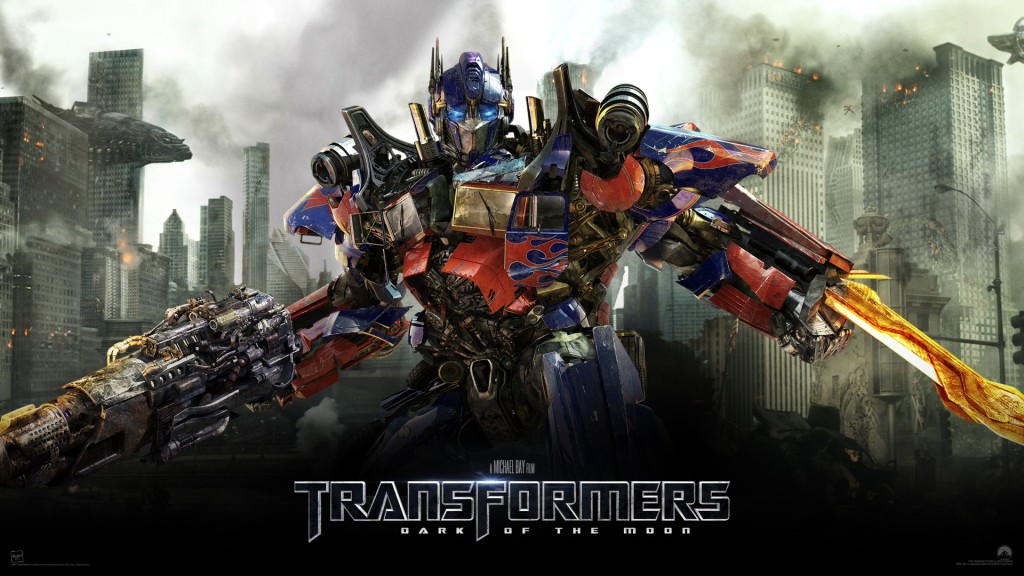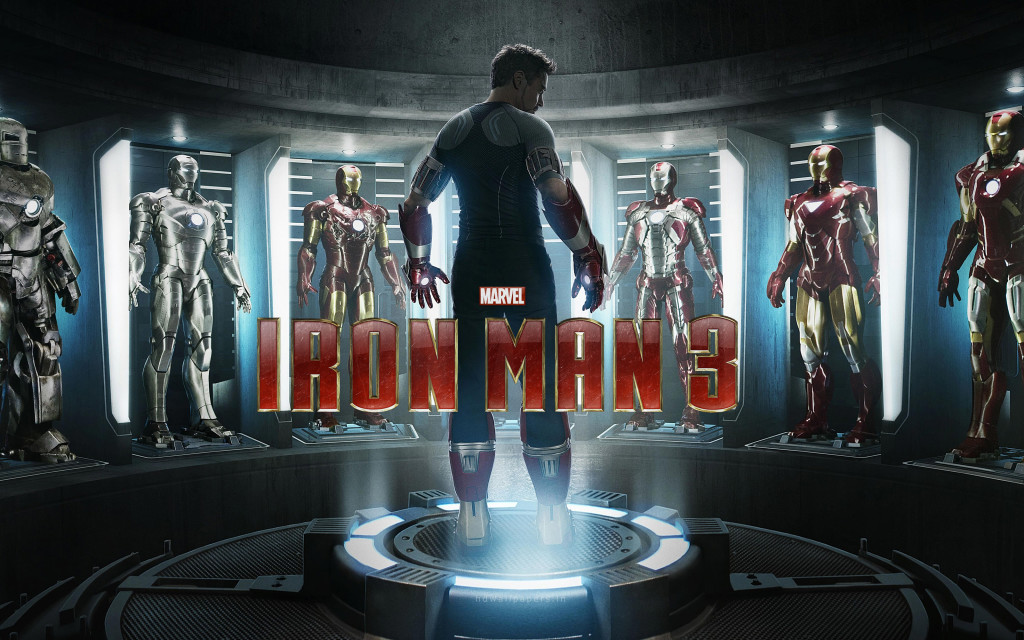Transformers 3: Dark of the Moon – If you went to this billion dollar grossing movie saga expecting some classy entertainment, you went to exactly the wrong place two years ago.
Rightfully, people call Michael Bay’s work a veritable display of “post-cinema”. Characters do what the plot requires, in what little plot exists, doing the actions that the machinations of the film requires them to do. Technobabble churns within the mouths of giant robotic creatures from another world. One side equals bad people because the special effects department gives them blue eyes, and one side obviously looks bad because of their red eyes. People yell and scream and fall down; bad things happen, then good things happen for an exhausting constant action sequence lasting upwards of one straight hour.
At the same time as the spectacle unfolds to your seemingly intellectual mindset, something primal within you emerges; you can’t look away. Michael Bay, for all his common tropes (fratboy humor, fetishistic violence), creates something incredibly engaging with little material. He doesn’t fill the screen with actors and actresses, but explosions. He films three seemingly disjointed genres at once and somehow combines them into one narrative as you begin to find yourself adapting to Bay’s whiplash pacing, sudden cuts, and lack of spatial cinematography. Note the massive use of a rotating camera around every single Transformer fight scene, how he fills up the picture with imagery, pounds your ears with the sounds of machinery clunking against machinery, and the utterly disorienting nature of most anything happening.
Yet, you realize that he told you the whole plot without skipping a beat, introduced a host of main and side characters, set up their motivations, included the unknowing audience members within the backstory of Bay’s Transformers mythos, and somehow managed to do all of this within a half hour or so. That they aren’t particularly interesting isn’t the point, of course, but the basic motivations laid bare show us all you need to know. Bay never really wastes a shot, even if the films run to seemingly absurd lengths for the dearth of plot elements. Rather, in the same way a video game tries to extend its replay value to give the consumer value for your money, Bay spends upwards of two hundred million dollars to give the audience their desired spectacle. In this case, giant robots fight each other, and wow do they fight each other a lot.
I suppose if you cherish the Transformers as part of your childhood you’ll find Bay’s interpretation as a giant pile of dreck and waste, a misuse of the franchise’s themes of good versus evil and the complexity thereof. Still, let’s look at this seriously for a moment: Michael Bay directed it. You should expect nothing more and nothing less than a Michael Bay movie, and if people continue to see it, they see it purely for spectacle. Sam Witwicky does not sell us a Bay picture, but the grand instinctual spectacle, the postmodern presentation, and the breakneck pace with its exhausting length give us exactly what we want.
I prefer The Rock, of course, but giant robots ain’t half bad.
Iron Man 3 – Marvel’s wise-cracking, anxiety attack playboy Tony Stark makes for a far better protagonist than a whiny kid who speaks to giant car robots.
Unfair comparison? Absolutely! We’re talking about a completely different sort of experience here. The Iron Man series stands out amid a sea of super hero films by somehow producing genuine humor. Robert Downey Jr. plays the role perfectly with unbelievably great comedic timing. Thanks to Shane Black, director and writer of Lethal Weapon and the new leader of this third (maybe final, probably not, nothing announced yet) Iron Man film, the film continues the streak of impeccable action sequences, interesting emotional crises, and the occasional whiff of self-aware dialogue that made this particular venture what it is.
Of course, one problem with “titular movie hero + sequel bait” means that most Marvel films can’t rely on the standard notion of surprising the audience – do you really think that your main character will die when he’s so bankable? – so the film must entertain and twist in other ways. I will, admittedly, say I had the plot figured out about twenty minutes into the fray, but it didn’t diminish my enjoyment at all. Rather, like the best action films, Iron Man 3 finds a way to make the suit interesting again by making it a bit player rather than the focus.
See, Stark loses the use of said suit early in the film, and only recaptures it during the finale. This means that he needs to use his genuine talents to succeed and survive while solving the mystery of the Mandarin’s indentity (which, again, takes something of ten minutes to figure out if you’re paying attention at all). This works because, well, Iron Man still remains an average joe without a suit of metal and pain, so he suffers from the same anxious feelings and problems that most normal people do. While that’s true of all super heroes, Stark’s the only “normal” guy of the whole Avengers bunch, so the audience can relate to him in a way that, say, Thor can never do.
So the entire narrative settles in and around real people issues set in a semi-fantastical setting filled to the gills with lovely CGI. It happens to work, if only because the strangness of superhero/comic book settings makes us look for the details to which we understand. We can see him as a flawed human being who rejects people, and then learns (within the space of a summer popcorn film, if I’m to be honest) that he can’t do that. You can see someone’s mistakes in the past lead to future problems, and then see how he prevents that. This is why people love comic book stuff: it strips out all the excess of normal human life, pinpointing and focusing on one particular issue with laser-sharp focus.
In that respect, Iron Man 3 smashes it out of the park through entertainment and plot that work together. In other words, this is very unlike Michael Bay.


